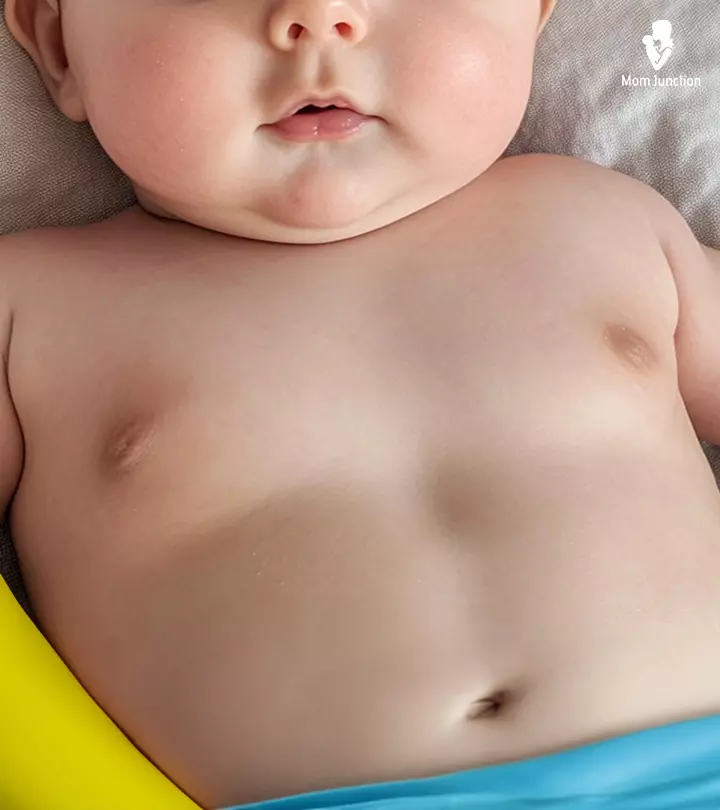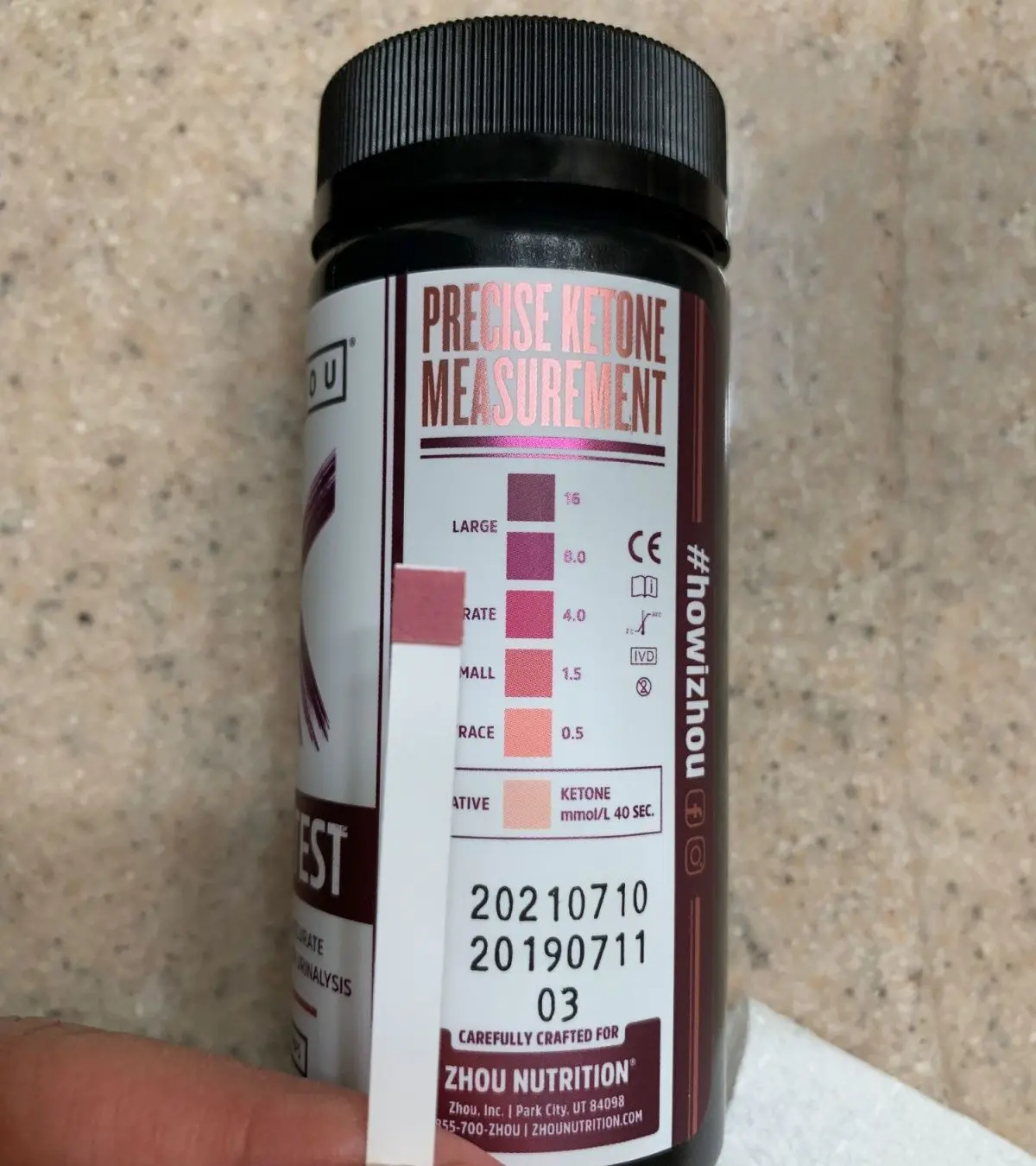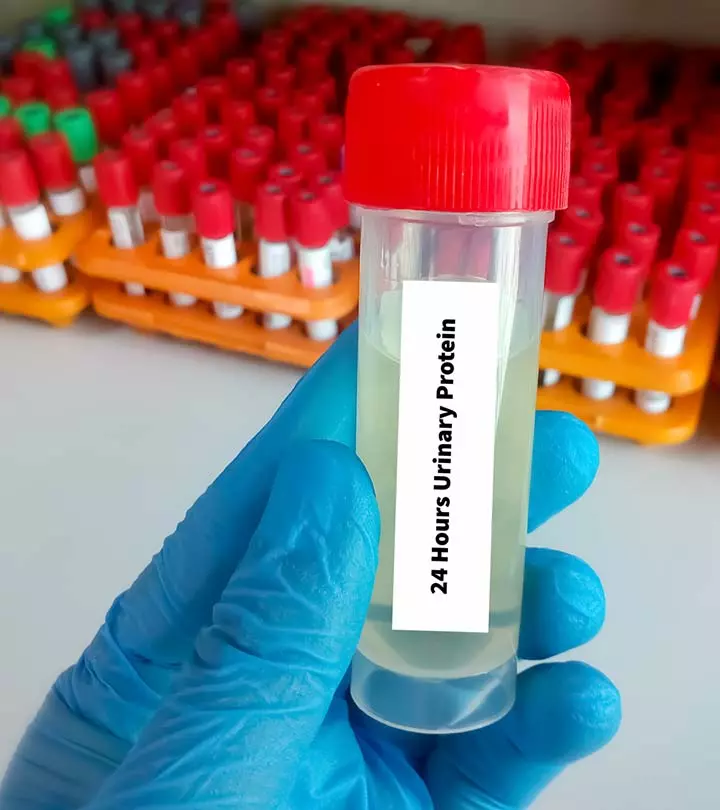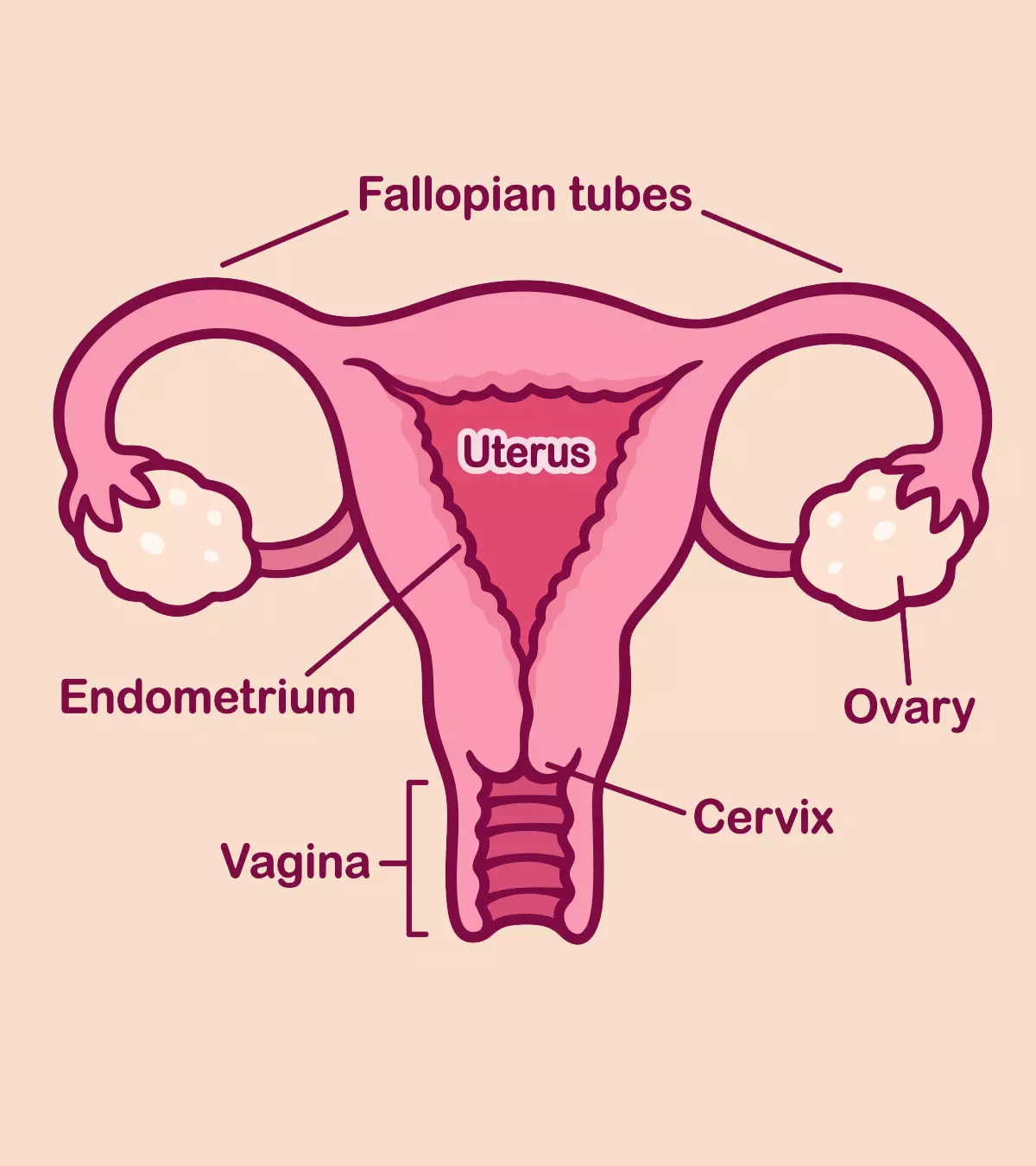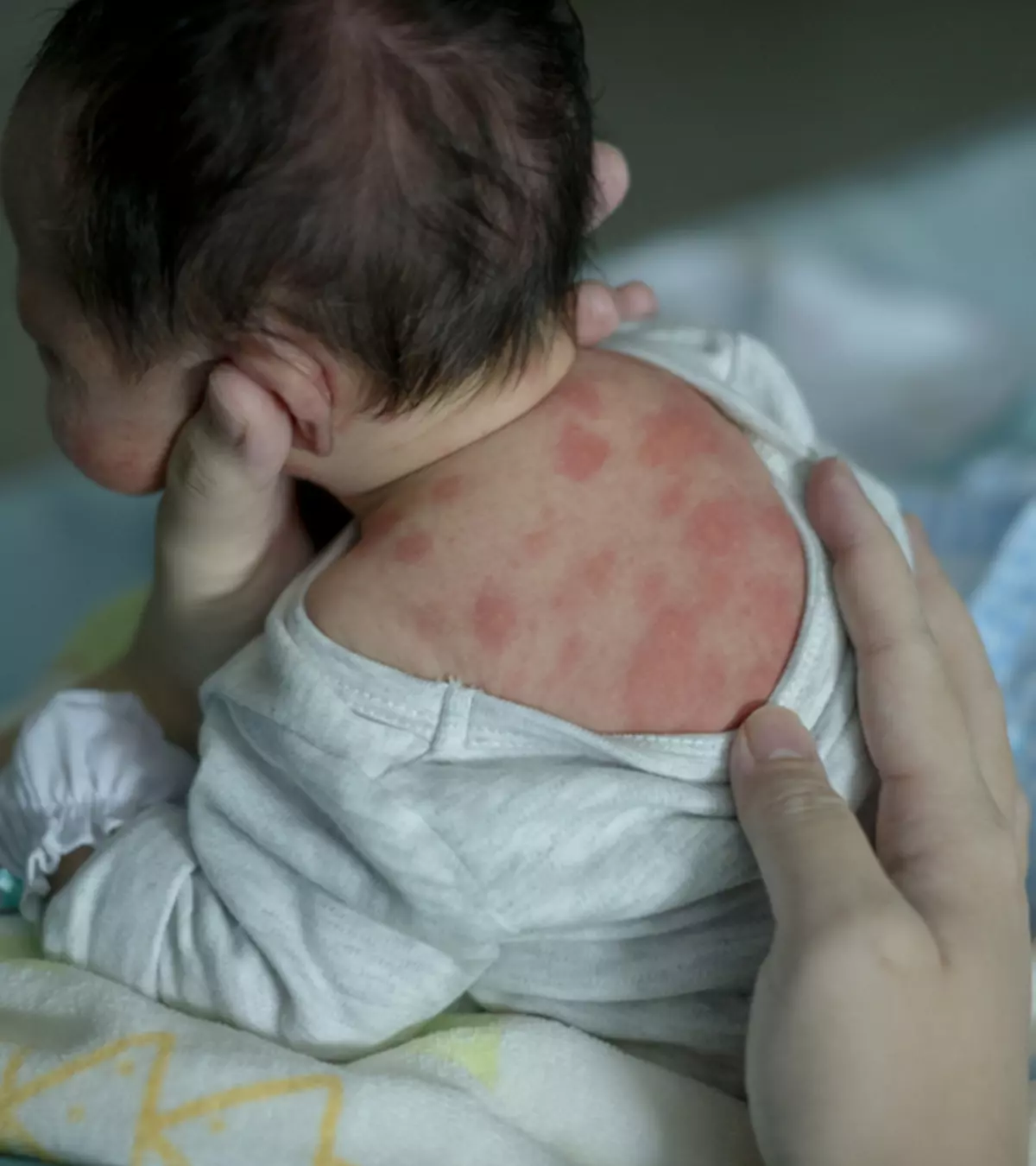
Image: Shutterstock

Urine is a clear or pale yellow, with a mild smell in most babies. However, there can be instances when you notice strong-smelling urine in babies. If your baby is well-hydrated and urine is pale, occasional strong-smelling urine is not a cause for concern. Sometimes, a strong urine odor can be due to inadequate feeding. However, it is advised to seek pediatric evaluation if your baby has persistent foul-smelling urine.
Read this post to learn about the causes, symptoms, treatment, and prevention of strong-smelling urine in babies.
Key Pointers
- Strong urine smell in babies could be due to varied reasons such as maternal medications or diet, or lack of milk.
- No need to worry as there are treatments depending on the cause.
- Consult a pediatrician if you notice a persistent foul smell.
Risk Factors And Causes Of Smelly Urine
The smell of a baby’s urine may change due to various factors ranging from diet to illnesses. Babies may have pungent urine due to the following reasons (1).
- Not getting enough milk and dehydration may cause dark and strong-smelling urine due to increased concentration of urine.
- Urinary tract infections may cause foul-smelling urine in babies. You may also look for other UTI symptoms, such as fever, since all babies with foul-smelling urine may not have UTI.

Image: Shutterstock
- Maternal diet may influence the smell of urine in breastfed babies. Although scientific evidence is lacking, certain foods, such as onion, asparagus, and garlic, in a mother’s diet may cause an unusual smell in the baby’s urine.
- Maternal medications, such as antibiotics, may also cause malodorous urine in breastfed babies.
- Diabetes (increased blood glucose) or maple syrup urine disease may cause a sweet urine odor.
- Liver failure may also cause smelly urine in babies. This is usually associated with jaundice (yellow skin).
- Constipation: When your child has infrequent, firm bowels, the urine may have an unpleasant odor. Parents frequently confuse this with a bladder infection. However, if the only symptom is foul-smelling urine, it is unlikely to be a UTI. Constipation can make it difficult to completely empty the bladder, causing the remaining urine to develop an odor. Providing your child with a fiber-rich diet, adequate water, and regular physical activity might help encourage healthy bowel movements and, as a result, ease possible urine odor issues. If the issue persists or there are new symptoms, consult your healthcare professional for a thorough evaluation and guidance (4).
 Point to consider
Point to considerDr. Sharon Wiener, a Texas-based board-certified pediatrician, says, “If your baby’s urine smells like vinegar, it is generally due to mild dehydration from not taking in fluids (breast milk) overnight. But it can also be due to something mom has eaten; for example, asparagus. If the odor is persistent and does not resolve quickly, it is always better to present it to your pediatrician to ensure it is not a urinary tract infection.”
Sometimes urine may smell different as babies grow older. Not changing nappies for a long time may also cause smelly urine. Some babies could have foul-smelling urine without any other issues. You may consult a pediatrician if you are concerned.
Symptoms And Signs That May Occur With Smelly Urine

Image: Shutterstock
You may notice the following signs and symptoms of possible underlying conditions in babies with persistent smelly urine (2).
- Foamy or cloudy urine
- Dark urine such as bloody, tea-colored, or pink-tinged
- Dribbling of urine
- Oliguria or no urine
- Fever
- EdemaiSwelling caused by fluid in the body’s tissues
- Symptoms of dehydration, such as sunken eyes and dry mouth
- Weakness
- Irritability
- Crying
- Lethargy
These signs may arise due to conditions that are also the reason behind smelly urine. If your baby is exhibiting any of the symptoms listed above along with a potent urine odor, it is highly recommended that you seek pediatric care.
If you suspect your baby’s strong-smelling urine is due to UTI, you may look for these additional signs of UTI in your baby (3):
- Fever over 100.4⁰F
- Crying when urinating, possibly due to pain and burning sensation
- Cloudy or blood urine
- Vomiting
- Loss of appetite
- Irritability with no apparent reason
 Be watchful
Be watchfulTreatment For Smelly Urine
Occasional cases of smelly urine may not require any treatment. Babies with persistent strong- or foul-smelling urine should be evaluated and treated. The treatment options may vary depending on the underlying cause.
- Rehydration therapy with intravenousiGiving medicines or fluids through a needle or tube inserted into the vein (IV) or oral fluids for dehydration
- Frequent bottle or breastfeeding suggested for maintaining hydration

Image: Shutterstock
- Antibiotics for persistent and recurrent urinary tract infectionsiWhen bacteria from the skin or rectum enter the urethra and infect the urinary tract
- Removal of bladder stones
- Control of diabetes and other metabolic disorders
- Maternal diet modifications
- Changing maternal or infant’s medications that may cause abnormal color and smell of urine
Prevention Of Smelly Urine In Babies
Adequate hydration of babies through regular breastfeeding and enough fluid intake can significantly help dilute the urine and reduce the intensity of its smell.
Babies will have at least five wet diapers per day with pale or straw yellow urine if they are hydrated well. Diapers should be changed on time to prevent them from stinking. Treating and controlling underlying conditions also help to prevent offensive urine odor.
Frequently Asked Questions
1. Why does a baby’s urine smell like ammonia?
Urine is composed of waste products, such as urea, dissolved in water. Urea may disintegrate into ammonia in some conditions. When it is diluted, you may not feel the smell. However, concentrated urine may have a strong odor of ammonia. The following conditions may cause ammonia odor in the urine.
- Bladder stones
- Dehydration
- Urinary tract infections (UTIs)
An occasional ammonia smell in a baby’s urine is normal. However, if it persists, pediatricians may order tests to look for kidney or bladder issues.
2. How can I tell if my baby is dehydrated?
Dehydration is a possible cause of a strong odor in the baby’s urine. Therefore, you must look out for signs that indicate dehydration in babies. These signs include drowsiness, irritability, sunken eyes, not many wet diapers, few or no tears when crying, and/or sunken fontanelle (5).
3. Is smelly urine a sign of teething?
There is no direct link between teethingiProcess of babies getting their first set of teeth and urine smell in infants. You may look for signs and symptoms of other conditions that may cause strong-smelling urine in babies.
4. Why does a baby’s urine smell like poop?
If your baby’s urine smells like poop, first check for soiled diapers. Feces-smelling urine without signs of bowel movement can be due to a urinary fistula, an abnormal opening connecting the bladder to the intestines. It may cause leakage of feces into the urine, resulting in the poop smell of urine (6). Consult a doctor since it may increase the risk of urinary tract infections and require surgical correction.
5. What does my baby’s sweet-smelling urine indicate?
Dr. Wiener observes, “The most common cause in babies is the metabolic disorder, maple sugar urine disease. This is generally picked up on a baby’s neonatal screens at birth and two weeks. The disorder may cause significant issues if not caught early. Occasionally, a urinary tract infection in babies can also cause sweet-smelling urine, although a foul odor is more typical. Glucose in the urine, indicating diabetes, a very rare condition in babies, can also cause sweet-smelling urine.”
6. Can diaper rash cause strong-smelling urine in babies?
Diaper rash is usually not a cause of strong urine scent in babies. On the other hand, if a diaper is not changed, then stool and urine can combine to make ammonia. This makes the diaper smell of ammonia and may cause diaper rash. It is more commonly seen with cloth diapers (4) (7).
7. How often should I change my baby’s diaper to prevent strong-smelling urine?
Babies may require eight to 12 diaper changes a day (8). It is usually advisable to change diapers every two to three hours and after every bowel movement to maintain proper diaper hygiene and to avoid foul urine odor in babies.
Inadequate hydration is the usual cause of strong-smelling urine in babies. Changing diapers after long intervals that can also give out a foul diaper odor. Increasing breastfeeding frequency or rehydration therapy for oral babies may resolve the problem without complications. However, some underlying conditions such as urinary tract infections, jaundice, diabetes, or maternal medications may cause a foul smell in urine. Check with a pediatrician if the condition doesn’t subside in a few days or if other symptoms such as fever, blood in urine, lethargy, or irritability are involved.
Infographic: Other Causes And Diagnostic Tests For Baby’s Smelly Urine
Foul-smelling urine may not always indicate a problem in babies, but when it is a persistent phenomenon, there may be medical reasons behind it. Here is an infographic that lists the uncommon causes of smelly urine in babies and probable diagnostic tests a doctor may suggest to evaluate the cause.
Some thing wrong with infographic shortcode. please verify shortcode syntax
Some thing wrong with illustration image shortcode. please verify shortcode syntax
Are you concerned and do you wonder why your baby’s diaper smells strange in the mornings? Check out this informative video to get a clear picture of what exactly is causing this and how it can be dealt with.
References
1. Smelly Urine; National Health Service
2. Urine Odor; Healthgrades
3. Urinary Tract Infections In Babies; Nationwide Children’s Hospital
4. Why Does My Child Have Stinky Pee? Nationwide Children’s Hospital
5. Dehydration; NHS UK
6. Urine Odor; MedlinePlus; US National Library of Medicine
7. Diaper Rash; Seattle Children’s Hospital
8. Changing Diapers; American Academy of Pediatrics
Community Experiences
Join the conversation and become a part of our nurturing community! Share your stories, experiences, and insights to connect with fellow parents.
Read full bio of Dr. Dur Afshar Agha
- Dr. Sharon Wiener is the primary, board-certified pediatrician at Pediatric Offices At Willow Bend and founder of Wellness at the Spa aesthetics and wellness center. She did her Doctor of Medicine (MD), Pediatrics Residency Program from Children's Medical Center and has over 20 years of experience.
 Dr. Sharon Wiener is the primary, board-certified pediatrician at Pediatric Offices At Willow Bend and founder of Wellness at the Spa aesthetics and wellness center. She did her Doctor of Medicine (MD), Pediatrics Residency Program from Children's Medical Center and has over 20 years of experience.
Dr. Sharon Wiener is the primary, board-certified pediatrician at Pediatric Offices At Willow Bend and founder of Wellness at the Spa aesthetics and wellness center. She did her Doctor of Medicine (MD), Pediatrics Residency Program from Children's Medical Center and has over 20 years of experience.
Read full bio of Dr Bisny T. Joseph
Read full bio of Rohit Garoo
Read full bio of Shinta Liz Sunny






